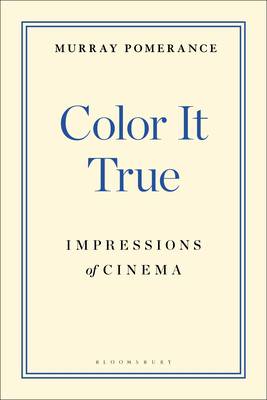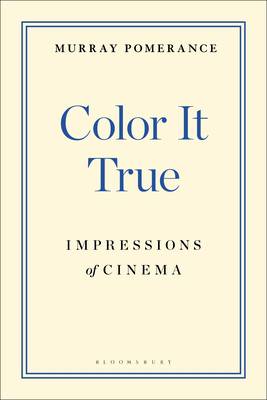
- Retrait gratuit dans votre magasin Club
- 7.000.000 titres dans notre catalogue
- Payer en toute sécurité
- Toujours un magasin près de chez vous
- Retrait gratuit dans votre magasin Club
- 7.000.0000 titres dans notre catalogue
- Payer en toute sécurité
- Toujours un magasin près de chez vous
228,95 €
+ 457 points
Format
Description
This often-startlingly original book introduces a new way of thinking about color in film as distinct from existing approaches which tend to emphasize either technical processes and/or histories of film coloration, or the meaning(s) of color as metaphor or symbol, or else part of a broader signifying system. Murray Pomerance's latest meditation on cinema has the author embed himself in various ways of thinking about color; not ways of framing it as a production trick or a symbolic language but ways of wondering how the color effect onscreen can work in the act of viewing.
Pomerance examines many issues, including acuity, dreaming, interrelationships, saturations, color contrasts, color and performance (color as a performance aid or even performance substitute), and more. The lavender of the photographer's seamless in Antonioni's Blow-Up taken in itself as an explosion of color worked into form, and then considered both as part of the story and part of our experience. The 14 chapters of this book each discuss a single primary color as regards to our experience of cinema. After opening the idea of such an exploration in terms of the history of our apperception and the variation in our experience that color germinates, Color it True takes form.Spécifications
Parties prenantes
- Auteur(s) :
- Editeur:
Contenu
- Nombre de pages :
- 360
- Langue:
- Anglais
Caractéristiques
- EAN:
- 9781501383113
- Date de parution :
- 13-01-22
- Format:
- Livre relié
- Format numérique:
- Genaaid
- Dimensions :
- 152 mm x 229 mm
- Poids :
- 648 g

Les avis
Nous publions uniquement les avis qui respectent les conditions requises. Consultez nos conditions pour les avis.






